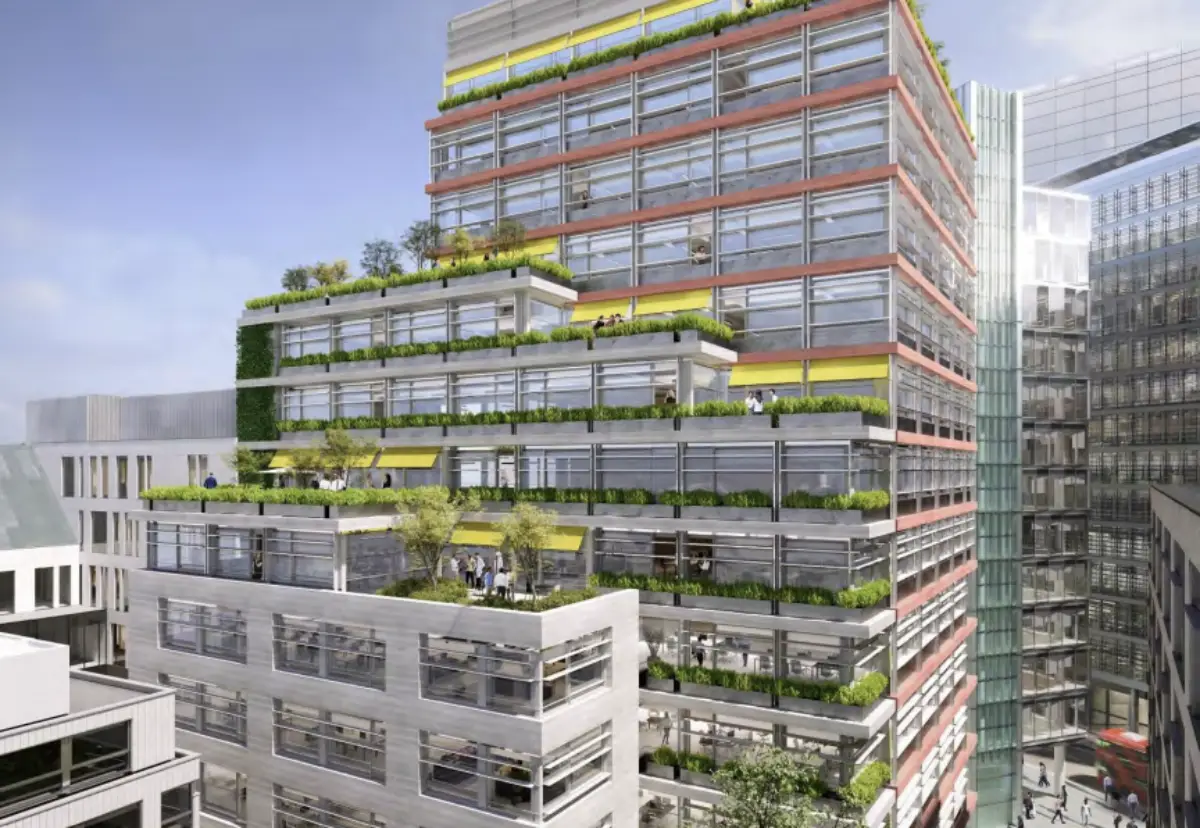City of London planners have given the green light for alternative project which will be an Office development at ‘Mucky Duck’ pub site, a London pub once known as a haunt for Fleet Street sports writers. Developer BREO Hundred was awarded planning for both development choices for a new 13 storey office block on the White Swan public house site at 100 Fetter Lane.
After completion, the new Office development at ‘Mucky Duck’ pub site will incorporate the pub, affectionately known as “the Mucky Duck” in the heyday of Fleet Street. The other option preferred by the developer will be demolishing the White Swan with an alternative bar constructed in another part of the building. The scheme is designed by Fletcher Priest Architects who are targeting a BREEAM ‘Outstanding’ rating for the 140,000 sq ft structure, which will offer office space, a sunken garden and new pedestrian route. Both Fleet Street’s ‘Mucky Duck’ pub development ideas increase urban greening with a number of roof terraces and public realm improvements
Read also:The Hanging Gardens of Salford under construction in UK.
Well being and diversity improvement.
Alastair Moss, the Planning and Transportation Committee chair at the City of London Corporation, said that the dual projects for the Fetter Lane site represent strong ongoing developer faith in the future of the City as a best location for having business and spending time with family, friends and colleagues. With advancement to the public realm, the retention of the hospitality provision and a commitment to high-quality office area, the scheme is in line with vision for the City’s pandemic recovery.
The emphasis on new pedestrian routes, active travel and urban greening constituents will bring benefits for both office residents and the wider local community by visual amenity, well-being and diversity improvement. The developer will have to decide which will ultimately be delivered.
The Fletcher Priest Architects, designers on Fleet Street’s ‘Mucky Duck’ pub site project are award-winning diverse practice of around 110 talented thinkers, creators and designers. Their approach is contextual, sustainable, people focused and collaborative across urban design, architectural and interiors informed by the cross-practice research team.

Leave a Reply